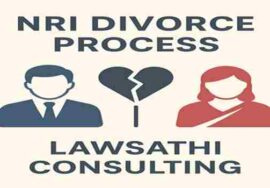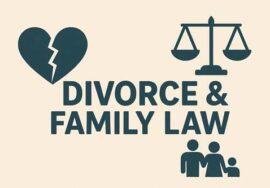The Degree of Prohibited Relationship Hindu Marriage Act: Overview
Under the Hindu Marriage Act, 1955, the concept of “degree of prohibited relationship”. The parameters of prohibited relationships to regulate marriages within the Hindu community.
These provisions are crucial in determining whether a marriage between two individuals is legally permissible.
Also to prevent marriages that are considered culturally or socially unacceptable due to close familial ties. Let’s delve into the specifics outlined in the Act:
Sapinda Relationship (Section 3(f))
The concept of the Sapinda relationship extends to the third generation through the mother’s line and the fifth generation through the father’s line. Here’s a breakdown:
Line of Ascent through the Mother: Extends up to the third generation (inclusive) from the person concerned.
Line of Ascent through the Father: Extends up to the fifth generation (inclusive) from the person concerned.
Two persons are said to be sapindas of each other if:
One is a lineal ascendant of the other within the specified limits.
They share a common lineal ascendant within the limits of the Sapinda relationship.
Degrees of Prohibited Relationship (Section 3(g))
The Act outlines various scenarios where individuals are deemed to be within the degrees of prohibited relationship. These include:
Lineal Ascendants: One is a lineal ascendant of the other.
Spousal Relationships: One was the spouse of a lineal ascendant or descendant of the other.
Marriage within Close Relatives: This includes relationships such as:
Wife of the brother
the father’s or mother’s brother’s wife
Wife of the grandfather’s or grandmother’s brother
Sibling Relationships: This encompasses direct sibling relationships, as well as relationships between uncle and niece, aunt and nephew, or children of siblings.
Explanation
For clarity, the Act provides explanations regarding the definition of a relationship. These include:
Relationship by Half or Uterine Blood: Considers relationships through both half and full blood.
Legitimacy of Relationship: Recognizes both legitimate and illegitimate blood relationships.
Adopted Relationships: Acknowledges relationships by adoption as well as by blood.
Conclusion
The Hindu Marriage Act, 1955, meticulously defines the degrees of prohibited relationships to maintain the sanctity of marriages within the Hindu community.
By delineating specific parameters and scenarios, the Act aims to prevent unions that are culturally or socially unacceptable due to close familial ties. Understanding these provisions is essential for individuals planning to enter into marital bonds within the Hindu tradition. Degree of Prohibited Relationship.
Court Marriage in Delhi
It can be difficult to navigate the complications of court marriage, but couples can benefit from a smooth and quick process by using Lawsathi Consulting Court Marriage Delhi services. With our all-inclusive service, you can be sure that your court marriage will go smoothly and swiftly with the least amount of fuss. Degree of Prohibited Relationship.
Common Question & Answer
How to get a court marriage done in Delhi?
You need to follow the prescribed procedure and fulfill certain legal requirements. Attached are the documents, verification of documents, and publication of notice. Solemnization of Marriage: Marriage will be solemnized at the office of the Marriage Officer in the presence of witnesses.
Can court marriage be done in one day?
Yes, you can go for Arya Samaj marriage, and after that, apply for marriage registration. Arya Samaj marriage takes two to three hours to complete.
What is the fee for court marriage?
Contact us at the lowest fee to learn the exact fee for court marriage in Delhi, India. The fees may cover different aspects of the court marriage process. Additionally, there may be additional charges for services like expedited processing or solemnization. Keep in mind that fees and service procedures are subject to change.
Court marriage documents list?
Here is a general list of documents commonly required for court marriage. Proof of identity, Proof of age, Residence proof, and Passport-sized photographs. If either party has been previously married, a copy of the former spouse’s divorce decree or death certificate should be provided.
Who can perform a court marriage?
A girl and a boy who are 18 and 21, and they are single at the time of marriage. Who follow court marriage laws and fulfill all the requirements.
Disclaimer: This article is for educational and informational purposes only. It provides a general understanding of legal remedies but does not constitute legal advice. For specific legal guidance, you can just consult the legal matter expert.




